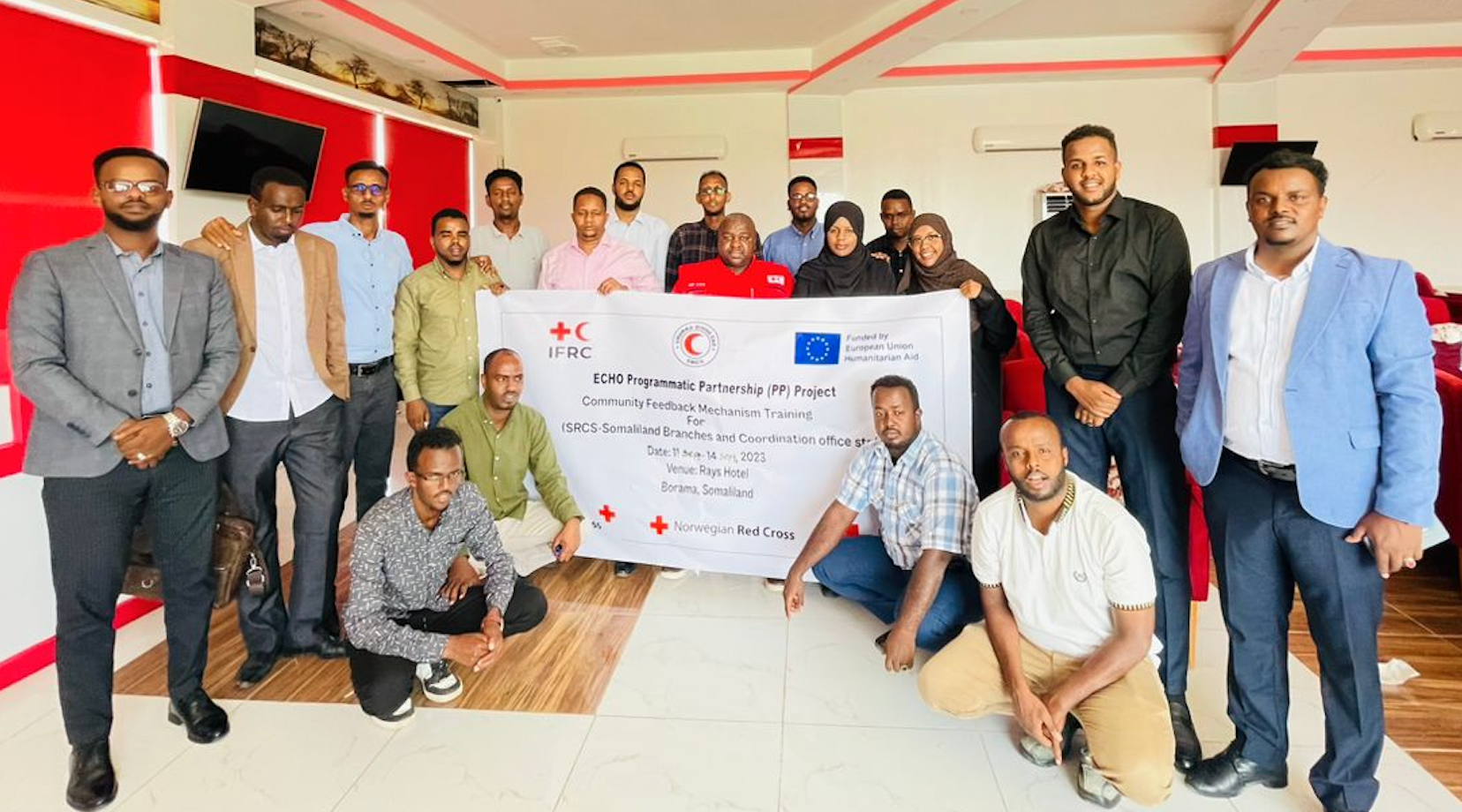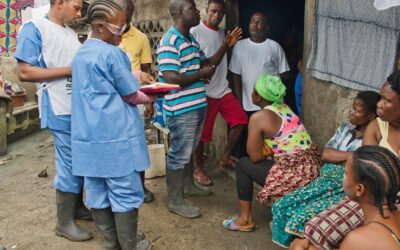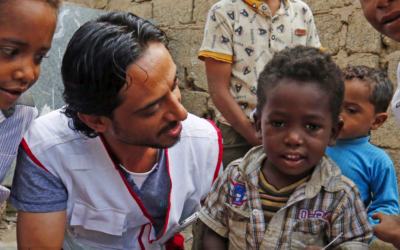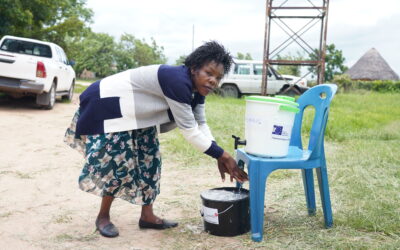The Collective Service (CS) has been implementing the recommendations of the East and Southern Africa (ESAR) Risk Communication and Community Engagement (RCCE) Technical Working Group (TWG) by providing technical support to response partners for RCCE coordination, community feedback mechanisms (CFM), social science, and information management upon request from countries in ESAR.
Somalia, one of the countries requesting support from The Collective Service, has been experiencing a protracted complex emergency over the last 25 years due to recurrent conflict, drought, floods, and food insecurity 1. An anticipated El Niño climate event has the potential to negatively affect approximately 1.2 million people in Somalia this year. Thousands of Somalis are currently at risk of contracting communicable diseases 2. The country has had uninterrupted cholera transmission in 29 drought- affected districts since 2022 and in Banadir region since the drought of 2017. Cholera continues to be the major public health risk in the country with a new cluster of cases confirmed in Burhakaba district in August 2023 3.
Somalia Support Mission Objectives
In the context of multiple emergencies in the region and the anticipated impact of El Niño, Somalia and Somaliland authorities have requested preparedness and response support from The Collective Service through the UNICEF Country Office. The Collective Service will provide support to partners to consolidate the Community Feedback Mechanism (CFM) and Accountability to Affected People (AAP) coordination processes.
Through the coordinated collection and analysis of social behavioural data into a community feedback mechanism, The Collective Service will support local partners to understand the social and behavioral factors in a community that are impacting the uptake of health-seeking behaviours, how to collect and assess this social behavioural feedback and data from communities using tools and strategies, and how to use this information and data to advocate for community needs and services.
Ngonidzashe Nyambawaro, the Regional Surge Coordinator focal point for The Collective Service, has been providing assistance to RCCE partners to strengthen community feedback tools and processes. Additionally, Ngonidzashe has conducted training sessions for key national focal persons on CFM and has offered support for piloting these tools. This effort builds upon the initial remote technical support provided over the past three months.
On-going Series of Trainings
Borama, Somaliland training – Ngonidzashe recently facilitated a training session for Somaliland Red Crescent Society (SRCS), in Borama. The 45 participants were from the National Society Coordination office and the six administrative regions of Somaliland.
The primary objective of this workshop was to strengthen the Community Feedback System of the SRCS. The areas covered during the training included an Introduction to Community Engagement and Accountability (CEA), the Community Feedback Mechanisms cycle (data collection, cleaning and analysis, and translation of feedback into action), and the development of Standard Operating Procedures for the full CFM steps phases.
Previously CFM activities were focused on health and nutrition, and this training will facilitate the inclusion of other sectors such as Disaster Risk Reduction (DRR), Cash Voucher Assistance (CVA), Food Security, and WASH (Water, Sanitation and Hygiene).
Mogadishu, Somalia and Hargeisa, Somaliland trainings – The second series of training sessions, still facilitated by The Collective Service, has been conducted in Hargeisa and was hosted by UNICEF. These sessions included 50 participants, comprised of UNICEF partners from both areas and government stakeholders from Hargeisa. The training topics encompassed the RCCE coordination structure in humanitarian emergencies, an introduction to RCCE, CFM cycles, the translation of feedback into actionable steps, and the review of data collection tools that relevant to the specific emergency response context of Hargeisa and Mogadishu.
This week, The Collective Service team is prioritising one-on-one meetings with partners, finalising the CFM package, and piloting data collection tools in both locations. Further subnational training sessions will be implemented by the country CFM Core team to ensure that the data collection teams are well-equipped and receive continuous support to maintain the flow of data.
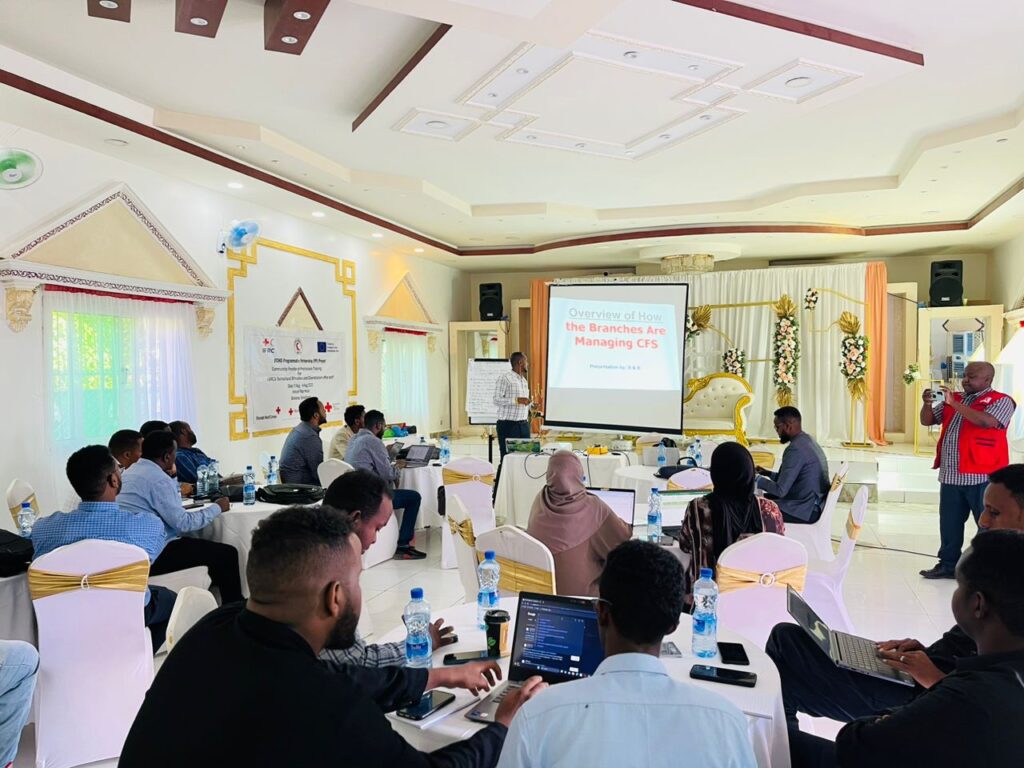
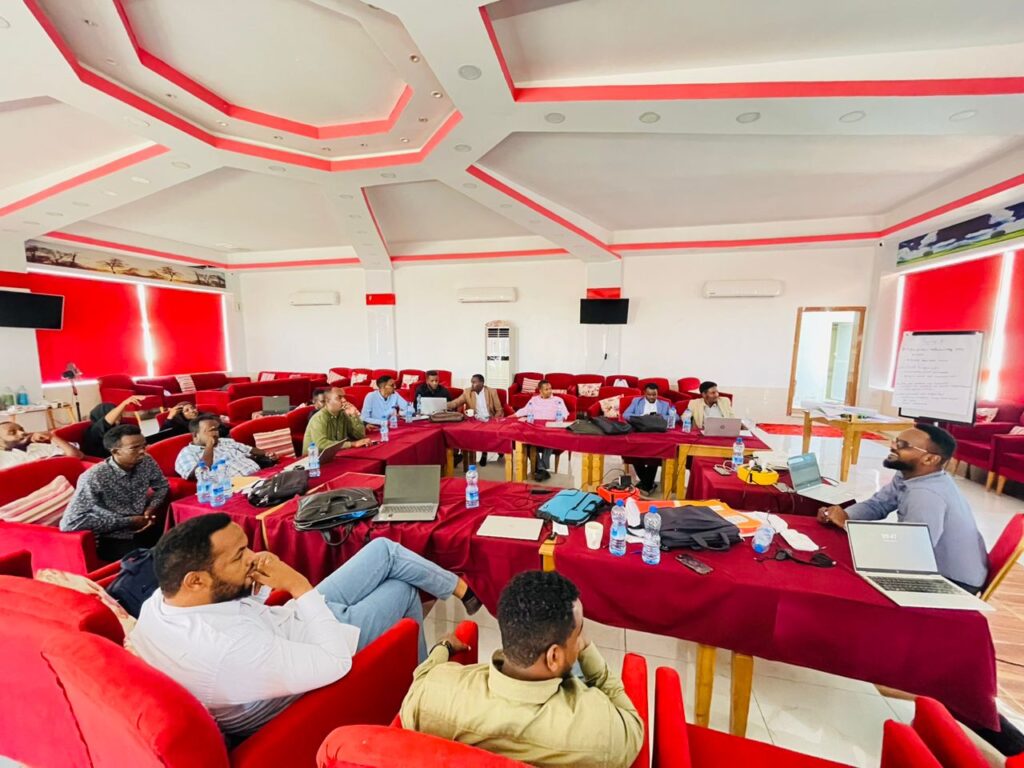
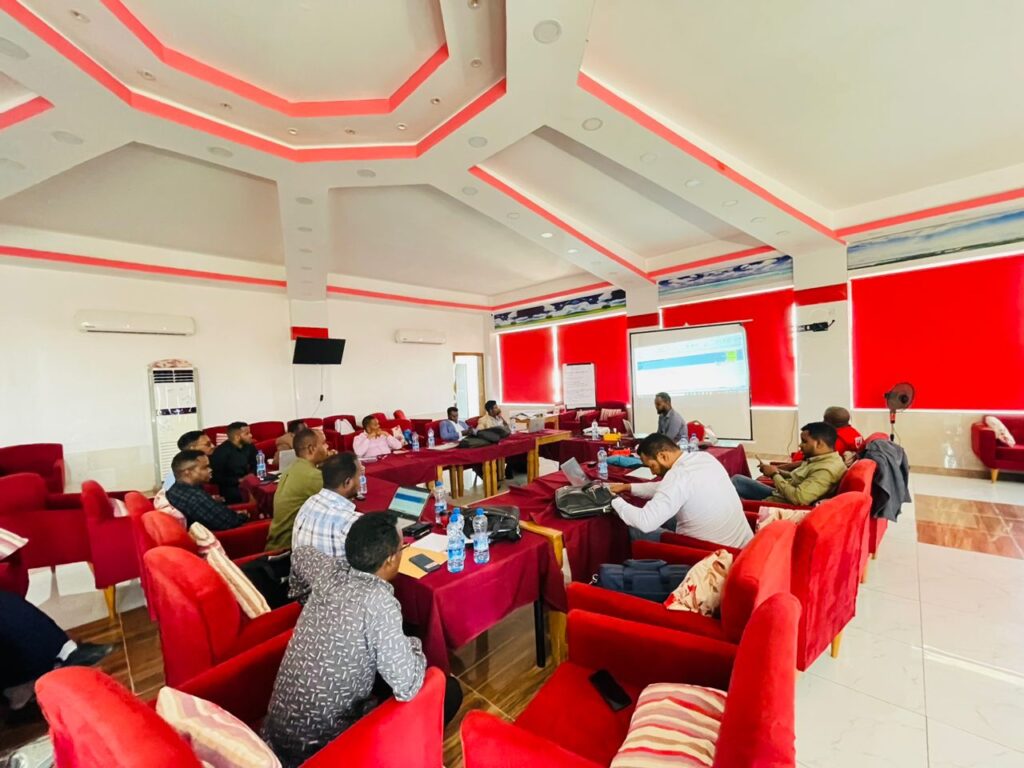
Training for Somaliland Red Crescent Society (SRCS), in Borama – September 2023
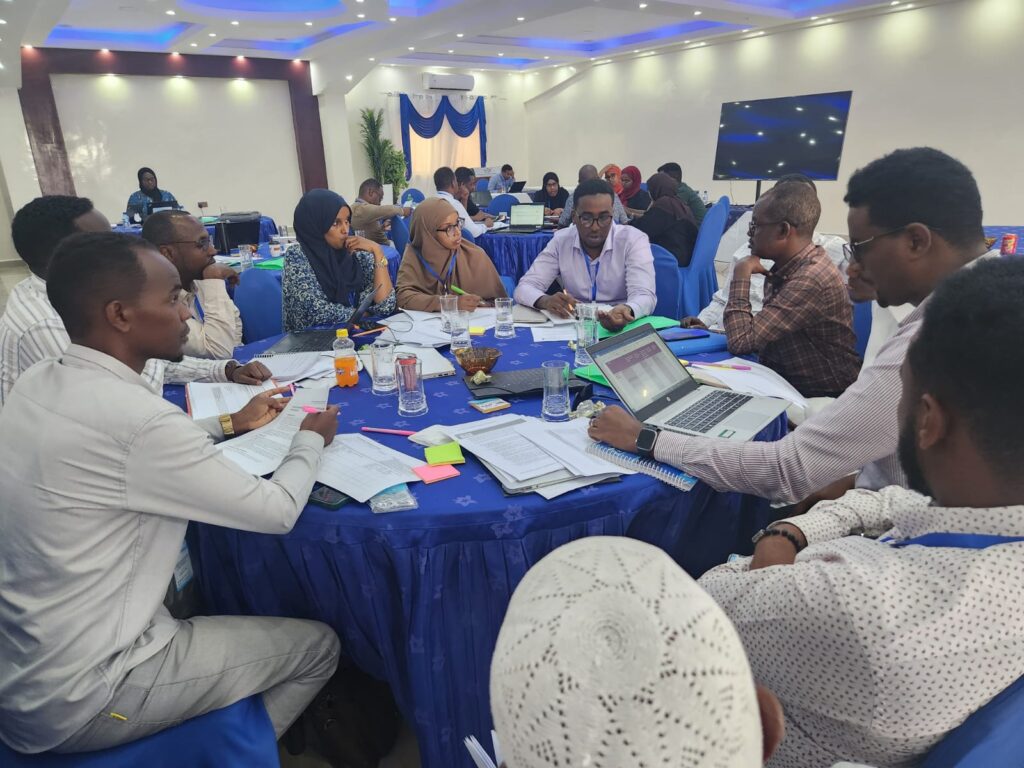
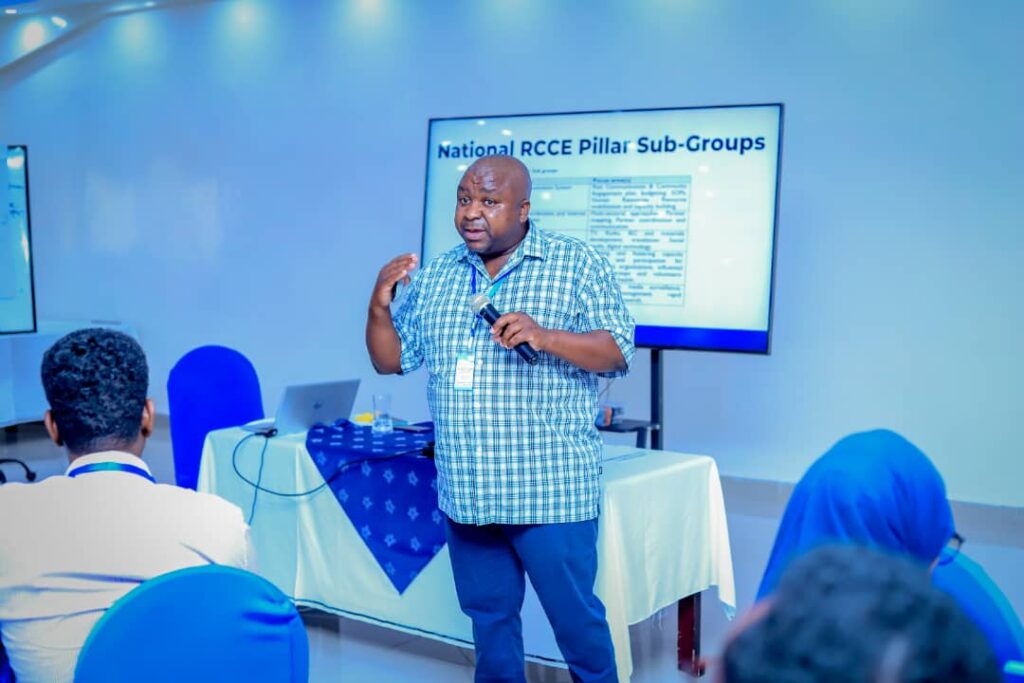
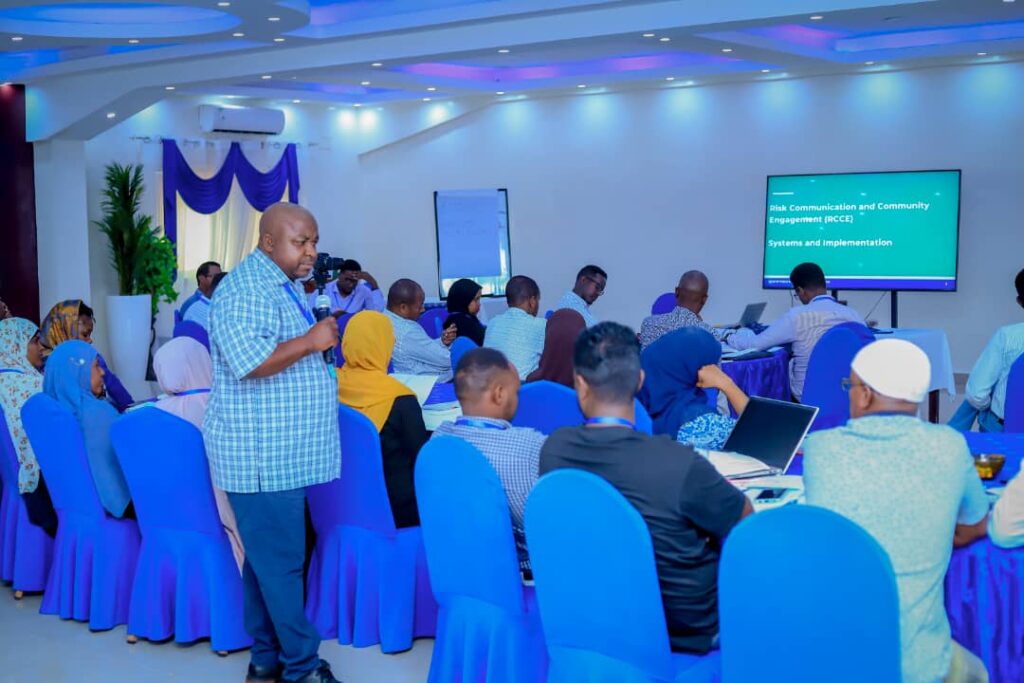
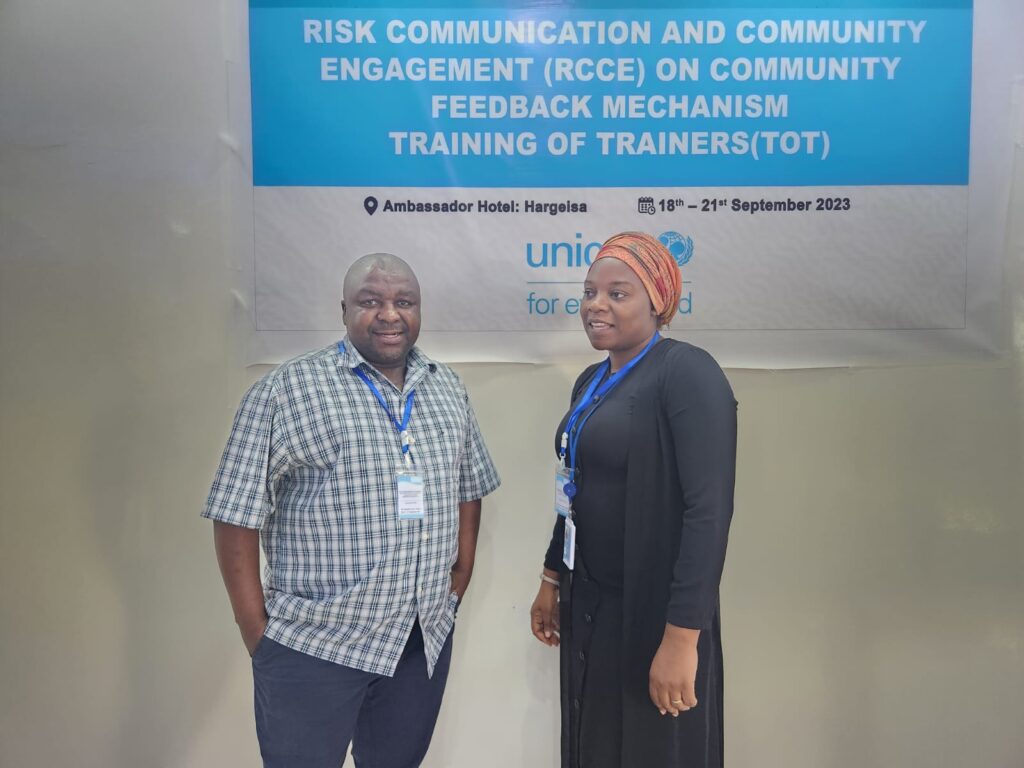
Somalia & Somaliland trainings for UNICEF and government stakeholders, in Hargeisa – September 2023
- WHO | El Niño climate phenomenon: scaling up Somalia’s cholera preparedness and response capacities |
https://www.emro.who.int/pandemic-epidemic-diseases/news/elnino-cholera-somalia.html ↩︎ - Food and Agriculture Organization of the United Nations (FAO) | Anticipating El Niño: A Mitigation, Preparedness and Response Plan (August 2023 – January 2024) | https://reliefweb.int/report/somalia/anticipating-el-nino-mitigation-preparedness-and-response-plan-august-2023-january-2024 ↩︎
- WHO | Weekly Cholera/AWD Situation Report – Somalia, Epidemiological Week 36 (4 – 10 September 2023) |
https://reliefweb.int/report/somalia/weekly-choleraawd-situation-report-somalia-epidemiological-week-36-4-10-september-2023 ↩︎

